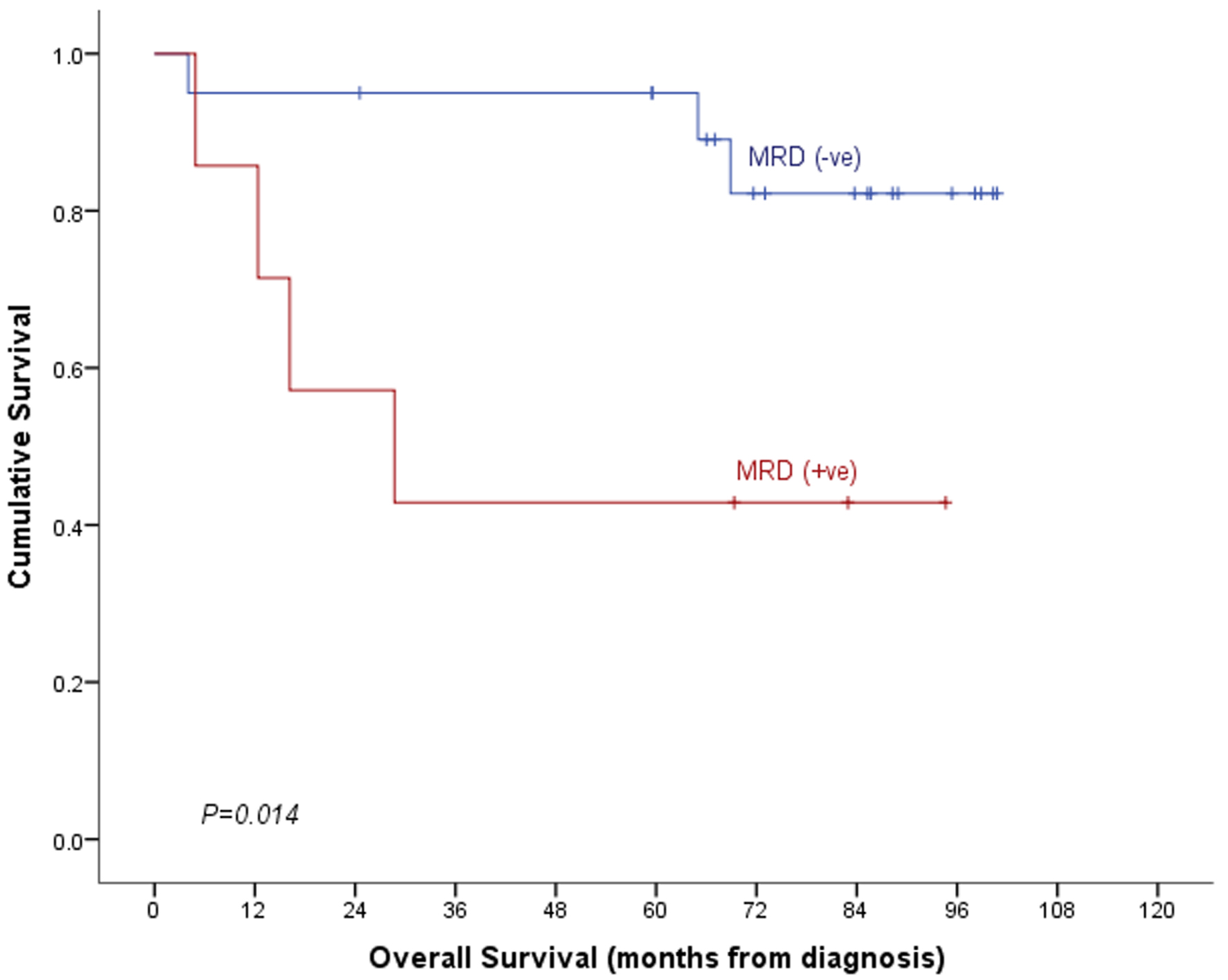Post-Induction Minimal Residual Disease in Pediatric Pre-B-Cell Acute Lymphoblastic Leukemia: A Step Towards Precision Medicine?
DOI:
https://doi.org/10.14740/jh1375Keywords:
Minimum residual disease, Acute lymphoblastic leukemia, Stem cell transplantation, Pediatric, Bone marrow, Risk factors, SurvivalAbstract
Background: Acute lymphoblastic leukemia (ALL) is the most common pediatric malignancy with an incidence of 30% of pediatric cancers across the world and 34% amongst Saudi children with cancers. Minimal residual disease (MRD) is considered the most important independent predictor in determining the risk of relapse and long-term outcomes in ALL patients and plays a pivotal role in guiding risk-adapted therapies. The aim of this research was to study the role of MRD on survival benefits in our patient population.
Methods: We reviewed medical records of 108 pediatric (age ≤ 14 years) ALL patients treated between January 2016 and December 2018 at our center to assess if MRD and other associated risk factors affect the outcome of patients at post-induction and post-consolidation phases of the treatment protocols.
Results: The median follow-up time in our cohort of patients was 75.6 months (95% confidence interval: 71.3 - 79.8 months). With a mortality rate of 10.2% (11 deaths out of 108 cases), overall survival (OS) of the whole cohort was 89.2±3.1%. OS was significantly lower in post-induction MRD-positive cases than in MRD-negative cases (74.2±8.6% vs. 94.7±2.6%, P = 0.006). It was worse among those patients who underwent consolidation therapy and had positive post-consolidation MRD. Event-free survival (EFS) was also significantly poor in post-induction MRD-positive cases (61.1±10.2% vs. 92.1±3.1%, P = 0.001). Twenty-seven patients who received consolidation therapy had the poorest EFS (P = 0.031). Amongst all the factors, including age at diagnosis, gender, white blood cell count, central nervous system status, risk group or cytogenetics, only post-induction MRD positivity was found to be significantly associated with OS.
Conclusion: Post-induction MRD is one of the most important factors affecting the patient’s outcome. Post-induction MRD-positive patients fared better after receiving consolidation therapy. No significant association was found between post-induction MRD and other risk factors.

Published
Issue
Section
License
Copyright (c) 2025 The authors

This work is licensed under a Creative Commons Attribution-NonCommercial 4.0 International License.








